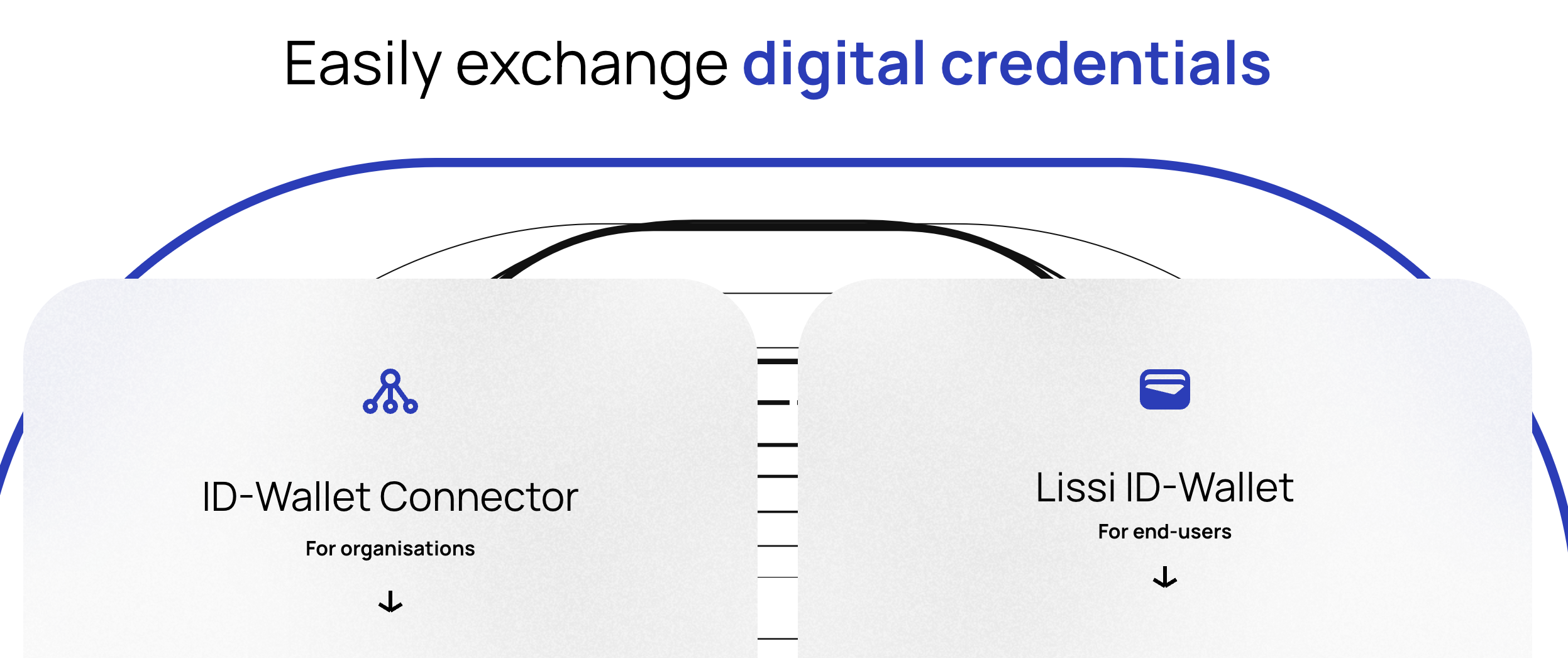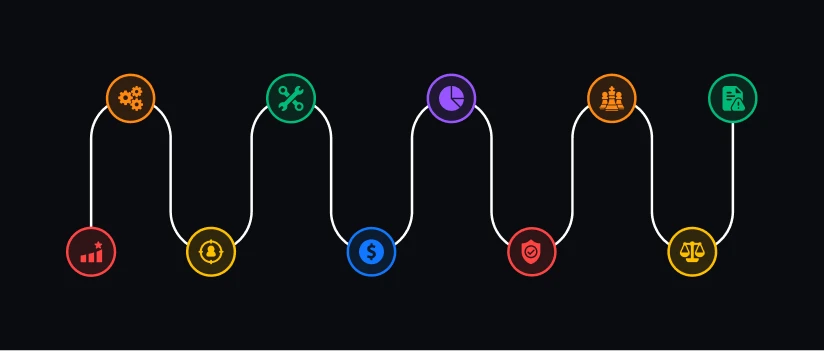Key takeaways
- Joint ventures are strategic partnerships that allow companies to grow faster, share risks, and access new capabilities.
- They can take various forms, e.g., horizontal, vertical, or functional, depending on the nature of the collaboration.
- Companies of all sizes—from startups to multinationals—can benefit from well-structured joint ventures.
- Structured content, clear roles, and mutual trust are key to ensuring long-term JV success.
- JVs are especially valuable in fast-moving sectors like EVs, streaming, fintech, and sustainability.
If you’ve had the feeling corporate spin-offs have been on the rise in recent years, you’re completely right. The trend that began in 2022 when Goldman Sachs reported a 33% surge in corporate spinoff activity has continued to gain momentum through 2025—and it's easy to see why.
The last few years have been marked by fewer IPOs, low merger activity, rising interest rates and below-average economic growth - a favourable climate for spin-offs . As a result, we’re bound to see more companies spinning off their ventures as a strategy to:
- Increase investor interest: Spin-offs often generate higher market valuations
- Meet regulatory requirements: Some industries require separation for legal reasons
- Gain operational flexibility: Spin-offs can scale faster without corporate constraints
As we move further into 2025, our landscape continues to create ideal conditions for executing successful spin-offs, with many companies finding that separate entities can move faster and create more value than they could as part of a larger organisation.
To give you a better idea of how spin-offs work in practice, let’s take a look at some recent real-world examples from top global enterprises.
1. Solventum: Growth through independance
Year of spin-off: April 2024
Spin-off gain: Focused growth
Parent company: 3M

Solventum emerged as an independent healthcare solutions company following 3M’s decision to spin off its wound care, oral care, health informatics, and biopharmaceutical filtration businesses. This move enabled Solventum to focus entirely on healthcare innovations without competing for resources within 3M.
Since the spin-off, Solventum has:
✅ Established itself as a standalone leader in healthcare technology
✅ Developed new product innovations and strategic partnerships
How did the spin-off benefit the parent company?
3M sharpened its focus on industrial, safety, and consumer businesses, ensuring dedicated resources for its core operations while allowing Solventum to pursue healthcare industry-specific growth.
2. SQUAKE: Unlocking new investment opportunities
Year of spin-off: 2021
Spin-off gain: New investors
Parent company: Lufthansa Group

SQUAKE is a climate-tech startup helping travel and mobility businesses develop sustainable solutions. It connects companies via API technology to calculate CO2 emissions and provides access to carbon offset initiatives.
Since the spin-off, Squake has:
✅ Gained two new investors: neosfer (formerly Main Incubator) and BackBone Ventures
✅ Expanded its platform to support global clients in mobility and logistics
✅ Partnered with Nippon Express, increasing its users
How did the spin-off benefit the parent company?
Lufthansa strengthened its commitment to sustainability by leveraging SQUAKE’s innovations without diverting focus from its core airline operations.
"For many companies in the travel, mobility and logistics industry, making the switch to sustainable offerings represents a major obstacle. This is precisely where SQUAKE comes in: We are helping companies create flexible offerings and products that meet their customers’ needs with a solution that is easy to implement…"
― Philipp von Lamezan, CEO and co-founder of Squake
3. TreasurUp: Boosting market reach and scale
Year of spin-off: 2021
Spin-off gain: Expanded global operations
Parent company: Rabobank

TreasurUp provides banks with white-label, cloud-based web and mobile front-end solutions created to meet the needs of corporate clients in areas like risk management, liquidity management and finance. Its services focus on helping banks grow in the commercial banking by providing their business clients with a constantly improving online experience.
Since the spin-off, TreasureUp has:
✅ Expanded beyond Europe
✅ Launched new treasury modules for banks worldwide
How did the spin-off benefit the parent company?
Rabobank positioned itself as an innovator in fintech while allowing TreasurUp to scale independently and attract new banking partners.
"Banks around the world are challenged with new business models and technology for small and medium-sized corporate clients. TreasurUp aims to bring them back into the competitive arena with online services that are completely designed around SMEs.”
― Niels van Daatselaar, CEO of TreasureUp
4. Lissi GmbH: Sharper strategic focus
Year of spin-off: 2023
Spin-off gain: Sharpened strategic focus
Parent company: Commerzbank Group

Lissi is a corporate startup that was incubated in and spun-off from neosfer, Commerzbank’s innovation unit. Through its software platform, Lissi offers a broad range of solutions designed to help both users and organisations issue, store and verify credentials. Its identity management software is built on global, open standards like Verifiable Credentials and OpenID, enabling trustworthy interactions throughout the entire customer lifecycle.
Since the spin-off, Lissi has:
✅ Partnered with major banks like Commerzbank and ING Deutschland
✅ Introduced EUDI across the EU, enabling expansion beyond standard EU protocols
How did the spin-off benefit the parent company?
Commerzbank remains at the forefront of digital identity solutions without the operational constraints of housing a separate tech unit.
The spin-off of Lissi is a major milestone for us. It confirms how important it is to give new ideas and approaches space and structure for their development.
― Matthias Lais, Managing Directors of neosfer
5. Koa Health: Scaling operations
Year of spin-off: 2020
Spin-off gain: New investors, scaled operations
Parent company: Telefónica

With over 3 million users, Koa Health is a digital healthcare provider that offers a range of personalised and accessible mental health solutions backed by science. Its comprehensive care model, The venture spun out from Telefónica’s moonshot factory, Alpha, lowering barriers to mental healthcare and making it more accessible.
Since the spin-off, Koa Health has:
✅ Raised funding from Morningside, Ancora Finance, and Wellington Partners
✅ Scaled its operation internationally broadening its user base
How did the spin-off benefit the parent company?
Telefónica supported a scalable healthtech business while focusing on its core telecom services.
“The spin-out supports our ambition to scale in order to meet the rapidly growing demand for digital mental health worldwide."
― Oliver Harrison, CEO of Koa Health
6. Louisa AI: From 25,000 to 50,000+ users
Year of spin-off: 2023
Spin-off gain: Scaled operations
Parent company: Goldman Sachs

Born in Goldman Sachs’ in-house incubator, GS Accelerate, Louisa is a collective intelligence platform designed to tap into a company's collective internal knowledge. It connects various data sources, functioning like a central hub for accessing pooled intelligence, enabling companies to use their workforce's full potential to address challenges, seize opportunities, and gain a competitive edge.
Louisa’s features include smart news alerts, expertise search, and dynamic network graphs, fostering cross-selling and collaboration. It also offers personalised feed to help keep users updated on things like team changes, new clients, or expertise developments, boosting communication and efficiency.
Since the spin-off:
✅ Expanded from 25,000 to 50,000+ users
✅ Secured new partners, including Insight Partners
How did the spin-off benefit the parent company?
Goldman Sachs enhanced its internal AI-driven operations while allowing Louisa to scale independently in the enterprise knowledge market.
“Think of Louisa as an AI-powered LinkedIn on steroids. We have smart profiles and a smart network and Louisa reads millions of articles a week from 250 providers and begins connecting people.”
― Rohan Doctor, CEO of Louisa
7. Nona Source: Growth without corporate constraints
📅 Year of spin-off: 2021
💰 Spin-off gain: Scaled operations
🏢 Parent company: LVMH

Born from LVMH’s Disrupt, Act, Risk to be an Entrepreneur (DARE) program—an intrapreneurial initiative to fast-track innovation—Nona Source tackles one of fashion’s biggest challenges: reducing waste while maintaining luxury quality.
Luxury brands like Louis Vuitton, Dior, and Celine often accumulate “deadstock”: high-end, unused fabrics and materials that would otherwise go to waste. Nona Source’s B2B platform gives these materials a second life, connecting designers with discounted, sustainable resources to create new collections.
The spin-off gave Nona Source the increased operational flexibility it needed to focus on its core competencies and scale its operation without the constraints of the larger corporate structure.
Since the spin-off:
✅ Streamlined partnerships with non-LVMH brands and indie designers
✅ Scaled operations independently from LVMH’s corporate structure
How did the spin-off benefit the parent company?
LVMH reinforced its commitment to sustainability while enabling Nona Source to scale its operation without corporate constraints.
8. Articul8 AI: Client base expansion
Year of spin-off: 2024
Spin-off gain: Strategic focus
Parent company: Intel

Articul8 offers a full-stack, vertically-optimized Generative AI platform that enables organisations to quickly develop, deploy, and manage secure, enterprise-grade GenAI applications. The solution is designed to be flexible across various infrastructures and hardware, focusing on converting data into actionable insights. With a team experienced in AI deployment across multiple industries, Articul8 supports businesses in leveraging AI to drive innovation and make informed decisions.
The newly minted spin-off will continue to leverage Intel's generative AI system and is already being used by companies including Scripps, Uptycs and Invest India. Its post-spin-off focus will include companies in areas like telecommunications, government, aerospace, life sciences and cybersecurity (among others).
Since the spin-off:
✅ Launched its new “A8 Essential” offering
✅ Scaled its product offerings for the broader GenAI ecosystem
How did the spin-off benefit the parent company?
Intel is exporing and gaining access to cutting-edge AI technologies without diverting focus from its core semiconductor business.
“With its deep AI and High-Performance Computing domain knowledge and enterprise-grade GenAI deployments, Articul8 is well positioned to deliver tangible business outcomes for Intel and our broader ecosystem of customers and partners…”
― Pat Gelsinger, Former CEO of Intel
Corporate Spin-offs FAQs
Q. What is a corporate spin-off?
A corporate spin-off is when a parent company separates part of its business into a new, independent entity. This allows both the parent company and the new venture to focus on their core strategies without operational conflicts.
Q. Why do companies spin off businesses?
Companies spin off ventures to increase shareholder value, streamline operations, scale faster, meet regulatory requirements, or explore new market opportunities without being constrained by the parent company's structure.
Q. How does a spin-off benefit the parent company?
Spin-offs enable parent companies to focus on their core operations while allowing the newly formed entity to innovate and attract investors. They also help eliminate inefficiencies and can improve overall financial performance.
Q. How is a spin-off different from an IPO?
A spin-off creates a new company from an existing business unit, while an IPO (Initial Public Offering) involves selling shares of a company to the public for the first time. Spin-offs are often used for strategic realignment rather than capital-raising.
Q. What industries see the most spin-offs?
Industries like technology, pharmaceuticals, financial services, manufacturing, and media frequently see spin-offs as companies seek to adapt to market changes and regulatory shifts.
Why spin-offs are winning in 2025
These real-world examples prove that spin-offs aren’t just corporate reshuffling—they’re strategic power plays to unlock growth. Here’s the big picture:
- Spin-offs like Articul8 AI and SpringWorks Therapeutics are thriving post-separation. According to Bloomberg, spin-offs outperform S&P 500 companies by an average of 10% t 18-4 months
- Freed from legacy systems, spin-offs like Nona Source and Lissi GmbH scaled faster by focusing on niche markets (circular fashion, digital identity).
- High-intent verticals (AI, climate tech, biopharma) attract specialised funding, as seen with SQUAKE and Koa Health.
It will be interesting to observe how these spun-off entities evolve independently and how the parent companies fare in the years to come. Stay tuned for more updates!
_________
Looking to launch your next spin-off? We can help you leverage insights gained during your validation initiatives to take your independent venture to scale and beyond.











.svg)


